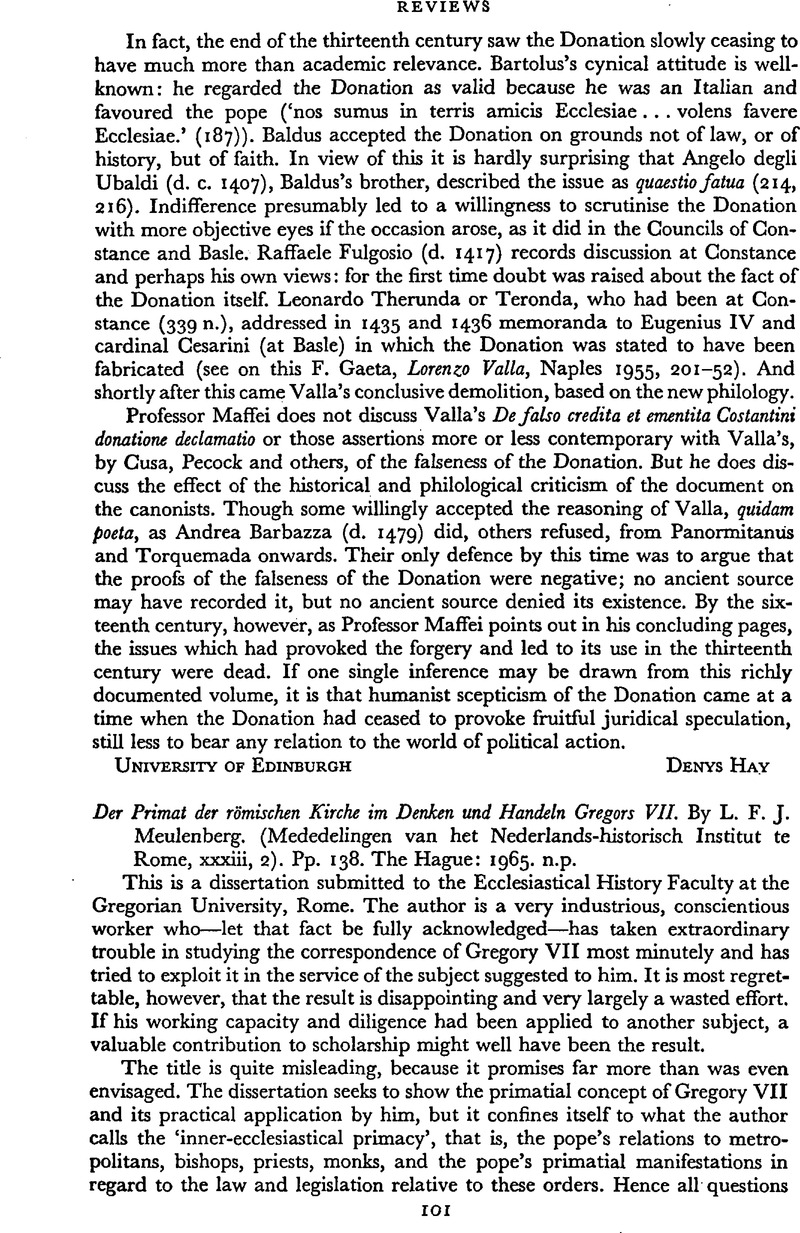No CrossRef data available.
Article contents
Der Primat der römischen Kirche im Denken and Handeln Gregors VII. By L. F. J. Meulenberg. (Mededelingen van het Nederlands-historisch Institut te Rome, xxxiii, 2). Pp. 138. The Hague: 1965. n.p.
Published online by Cambridge University Press: 25 March 2011
Abstract

- Type
- Reviews
- Information
- Copyright
- Copyright © Cambridge University Press 1968
References
page 102 note 1 Correctly understood, they unwittingly lend considerable support to the thesis of Sohm.
page 102 note 2 All he can do with these concepts is to say that the pope admitted that he was not perfect (33). If he had tried to understand the Leonine indignus haeres and had consequently detached himself from such vague, if not meaningless, notions as Petrusmystik and Erbheiligkeit, he would have found it easier to deal with the points raised at 42 f.
page 102 note 3 Cf. on this Rahner, H., Abendländische Kirckenfreiheit, 2nd ed.Munich 1961, 210 n. 24Google Scholar.
page 102 note 4 Cf. for this H. Sudendorf, Registurn, Jena 1849, i. 6 ff., no. 4.
page 103 note 1 See 104: that Sägmüller had explicity disowned his earlier view (expressed in 1898), has escaped the author; see Sägmüller, J. B., Zur Geschichte der Entwicklung des pāpstlichen Gesetzgebungsrechts, 2nd ed.Rottenburg 1936, 16 n. 31Google Scholar.
page 103 note 2 With considerable justification Erdmann, C. (Entstehung des Kreuzzugsgedankens, Stuttgart 1936, 151)Google Scholar had remarked in respect of this Gregorian statement that if we did not know it from Gregory himself, we might well think this was a bad joke made by a malicious opponent of the pope.
page 103 note 3 The author refers to this (57 f.), but omits to state that if the man elected were to refuse to accept the election, he should be compelled by force: ‘Si vero (Gregory writes to the archbishop of Lyons) ipse (the elected) hunc ordinem suscipere renuerit et inflexibilem se exhibuerit, volumus, ut cum episcopo suo vim sibi inferas eumque ad recipiendum episcopalem ordinem vigilanti studio atque pastorali rigore constringas’.


